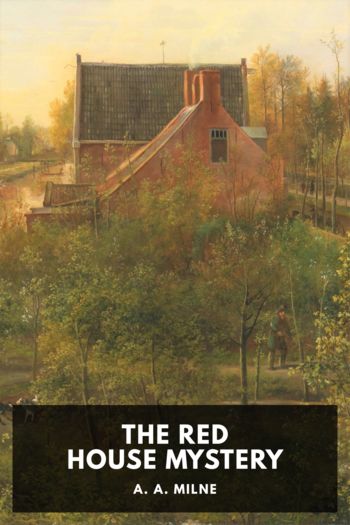Short Fiction - Edgar Allan Poe (book reader for pc .TXT) 📗

- Author: Edgar Allan Poe
Book online «Short Fiction - Edgar Allan Poe (book reader for pc .TXT) 📗». Author Edgar Allan Poe
“From what I have already observed,” said Mr. Ellison, “you will understand that I reject the idea, here expressed, of ‘recalling the original beauty of the country.’ The original beauty is never so great as that which may be introduced. Of course, much depends upon the selection of a spot with capabilities. What is said in respect to the ‘detecting and bringing into practice those nice relations of size, proportion and color,’ is a mere vagueness of speech, which may mean much, or little, or nothing, and which guides in no degree. That the true ‘result of the natural style of gardening is seen rather in the absence of all defects and incongruities, than in the creation of any special wonders or miracles,’ is a proposition better suited to the grovelling apprehension of the herd, than to the fervid dreams of the man of genius. The merit suggested is, at best, negative, and appertains to that hobbling criticism which, in letters, would elevate Addison into apotheosis. In truth, while that merit which consists in the mere avoiding demerit, appeals directly to the understanding, and can thus be foreshadowed in Rule, the loftier merit, which breathes and flames in invention or creation, can be apprehended solely in its results. Rule applies but to the excellences of avoidance—to the virtues which deny or refrain. Beyond these the critical art can but suggest. We may be instructed to build an Odyssey, but it is in vain that we are told how to conceive a Tempest, an Inferno, a Prometheus Bound, a Nightingale, such as that of Keats, or the Sensitive Plant of Shelley. But, the thing done, the wonder accomplished, and the capacity for apprehension becomes universal. The sophists of the negative school, who, through inability to create, have scoffed at creation, are now found the loudest in applause. What, in its chrysalis condition of principle, affronted their demure reason, never fails, in its maturity of accomplishment, to extort admiration from their instinct of the beautiful or of the sublime.
“Our author’s observations on the artificial style of gardening,” continued Mr. Ellison, “are less objectionable. ‘A mixture of pure art in a garden scene, adds to it a great beauty.’ This is just, and the reference to the sense of human interest is equally so. I repeat that the principle here expressed, is incontrovertible; but there may be something even beyond it. There may be an object in full keeping with the principle suggested—an object unattainable by the means ordinarily in possession of mankind, yet which, if attained, would lend a charm to the landscape-garden immeasurably surpassing that which a merely human interest could bestow. The true poet possessed of very unusual pecuniary resources, might possibly, while retaining the necessary idea of art or interest or culture, so imbue his designs at once with extent and novelty of Beauty, as to convey the sentiment of spiritual interference. It will be seen that, in bringing about such result, he secures all the advantages of interest or design, while relieving his work of all the harshness and technicality of Art. In the most rugged of wildernesses—in the most savage of the scenes of pure Nature—there is apparent the art of a Creator; yet is this art apparent only to reflection; in no respect has it the obvious force of a feeling. Now, if we imagine this sense of the Almighty Design to be harmonized in a measurable degree, if we suppose a landscape whose combined strangeness, vastness, definitiveness, and magnificence, shall inspire the idea of culture, or care, or superintendence, on the part of intelligences superior yet akin to humanity—then the sentiment of interest is preserved, while the Art is made to assume the air of an intermediate or secondary Nature—a Nature which is not God, nor an emanation of God, but which still is Nature, in the sense that it is the handiwork of the angels that hover between man and God.”
It was in devoting his gigantic wealth to the practical embodiment of a vision such as this—in the free exercise in the open air, which resulted from personal direction of his plans—in the continuous and unceasing object which these plans afforded—in the contempt of ambition which it enabled him more to feel than to affect—and, lastly, it was in the companionship and sympathy of a devoted wife, that Ellison thought to find, and found, an exemption from the ordinary cares of Humanity, with a far greater amount of positive happiness than ever glowed in the rapt daydreams of De Stäel.
The Mystery of Marie Rogêt27 A Sequel to “The Murders in the Rue Morgue”Es giebt eine Reihe idealischer Begebenheiten, die der Wirklichkeit parallel lauft. Selten fallen sie zusammen. Menschen und zufalle modifieiren gewohulich die idealische Begebenheit, so dass sie unvollkommen erscheint, und ihre Folgen gleichfalls unvollkommen sind. So bei der Reformation; statt des Protestantismus kam das Lutherthum hervor.
There are ideal series of events which run parallel with the real ones. They rarely coincide. Men





Comments (0)